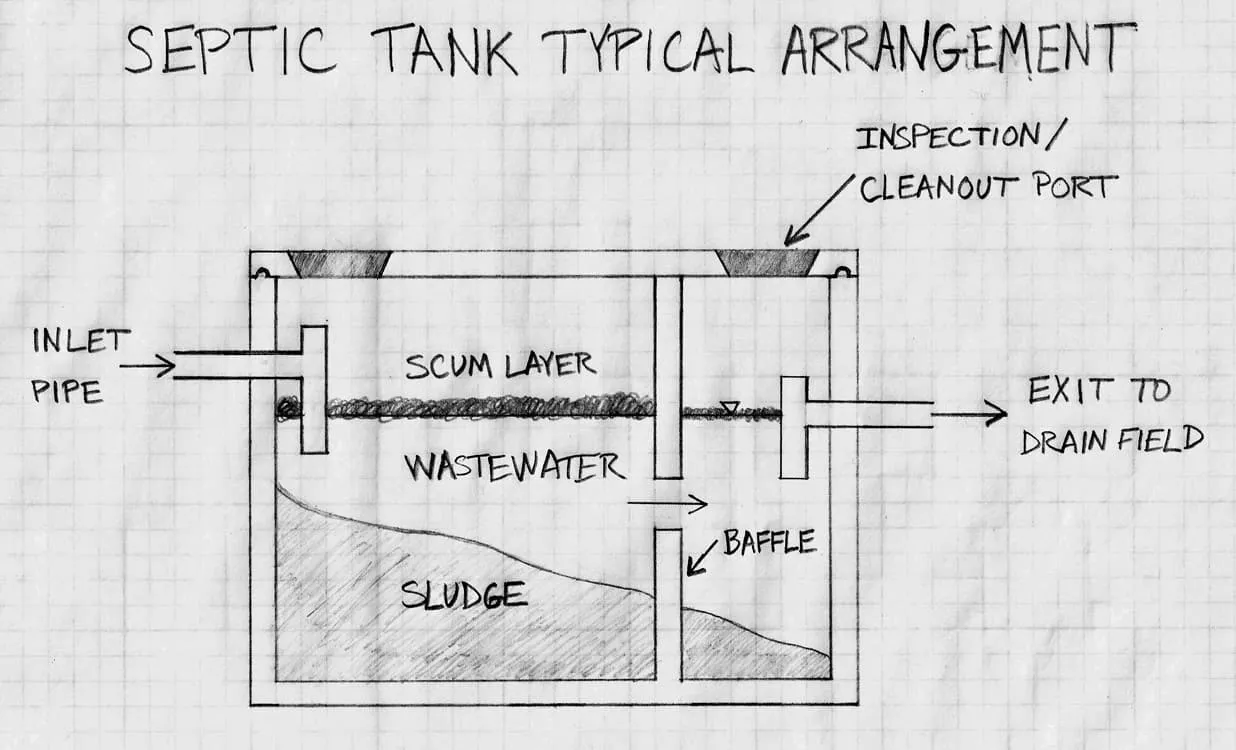How to Prevent Septic System Problems During Heavy Rain
Does water drain slowly in your bathroom?
Does your toilet gurgle when it is flushed?
Is there standing water with a bad smell in your leach field area?
All of these issues can be symptoms of septic problems that occur during heavy rain years. Heavy rains can cause ground water to rise and cause leach fields to become flooded and not work properly. Heavy rains can also cause problems if your septic system has not been well maintained. Septic systems require regular maintenance to prevent solids from reaching the leach field. When solid waste makes its way to the leach field, it can clog leach lines or worse—clog the soil’s pores. If the soil’s pores are clogged, your septic system will not work.
So how can you prevent septic tank problems when it rains? You don’t have to wait until there’s a problem. We explain how to keep rainwater out of your septic tank.
Preventing Septic Tank Problems
Here are some preventative maintenance steps on a few septic tank components you can take to keep your septic tank working smoothly:
- Pump your septic tank every 3-5 years. Pumping the septic tank every 3-5 years will keep the solid side of the tank from over flowing into the liquid side of the tank that drains to the leach field. If you’re not sure where the septic tank is, your home should offer some clues on how to find it.
- Install septic tank risers and lids. Most tanks are buried under ground and are not easily accessed. It’s a good idea to have the septic tank dug up and have risers with lids installed at ground level. If a problem does occur, septic tank risers and lids allow repairs to be made faster and at less cost. If you don’t have risers and lids, you’ll have to find your buried septic tank lid and dig it up yourself or pay someone to dig it up for you so the tank can be serviced. The top of most septic tanks are buried between 1’-3’ below the surface.
- Check baffle tees. Baffle tees are found inside the tank on either side of the pipes inlet and outlet. Baffle tees help stop the flow of wastewater. The baffle tee allows the incoming waste to flow into the tank under the crust level. Check to make sure the baffle tees are installed properly and are not clogged. If a baffle tee is missing it will cause stoppages at the tank because the solid side crust level will block the flow of incoming waste.
Contact Fletcher’s Plumbing
Want to learn more about preventing septic tank problems when it rains? Read our blogs, or if you require professional local septic tank services, call Fletcher’s Plumbing & Contracting at 530-285-3793. For more information, visit our website and contact us today with questions about pricing or the plumbing services we offer.

